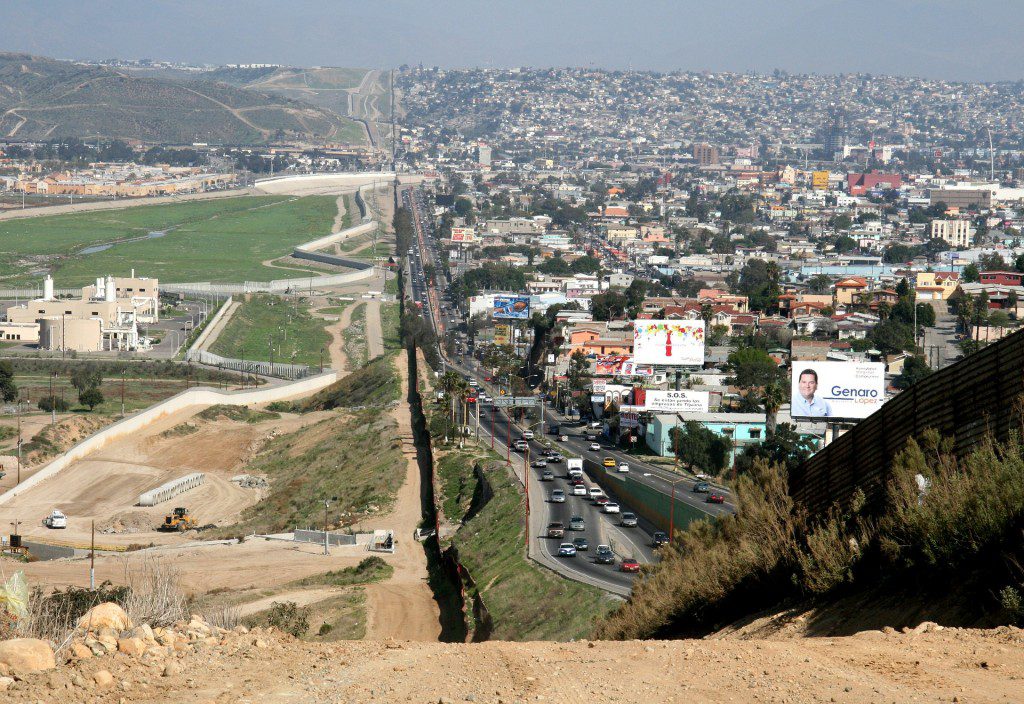
In the news yesterday were reports (e.g., CNN) that Mexican President Enrique Pena Nieto cancelled a planned meeting with President Trump (yeah, it’s crazy to write that!) after disputes over Trump’s plan to build a wall and pass on the costs to Mexico.
Now, it seems to me that back during the election, pundits liked to say of Trump’s “Mexico will pay for it” claim, that he was just staking out a negotiating posture, so that, in the end, the Mexican government would come back with something like, “OK, fine, build the wall if you want, but we won’t pay for it.” But it seems that Pena Nieto’s objection is to far more than a wall, but to Trump’s plans to cut off illegal immigration and deport criminals. According to CNN:
“I’ve asked for the minister of Foreign Relations to re-enforce protection measures to our citizens,” [Pena Nieto] said. He added that the 50 Mexican consulates in the US will be used to defend the rights of immigrants in the country and issued a call to action to legislators and civic organizations to help immigrants.
CNN also reported,
In a Monday speech, Peña Nieto said his government is prepared to negotiate with the US if Mexico’s national sovereignty is respected. He laid out economic integration and respect for the rights of migrants and the money they send home as his nation’s key negotiating points.
And I’ve read time and again that Mexican migrants in the U.S. send large sums of money back home, that the Mexican government actively works, through the consulates and other outreach activities, to keep Mexicans in the U.S. connected to Mexico to keep the money flowing, that some villages are nearly completely lacking in young men, since they have all left for America and send money back to their parents. And CNN reported just the other day that remittances are so high that the cash brought in exceeds that of Mexico’s oil imports.
Oh, and the populist candidate in Mexico’s 2018 presidential election, Andres Manuel Lopez Obrador, has called for the Mexican government to file a lawsuit “at the U.N.” over the wall, as a “violation of human rights,” is planning a tour of the U.S. to speak to Mexicans there, and calls out in his rallies:
“Go and fight for liberty, represent our people with dignity and all human beings who dream of a just world. . . Defend the migrant Mexican workers, long live the immigrants!”
Which all paints a picture of a country in such dire straights that it relies on the money brought in by migrants to keep its people fed, and so desperate to keep this pipeline flowing that it will do whatever it can to keep the border open, both through its own policy actions and by calling on Mexicans in the United States and their supporters to oppose the wall.
But so far as I can tell, keeping NAFTA in place is far more crucial to the Mexican economy.
The amount of remittances sounds large when compared to oil exports, but this is only 2.3% of the Mexican GDP. For your reading pleasure, take a look at this table from the World Bank with remittance percentages for all countries. This highest percentage is in Nepal, 31.8%. In the Americas, Haiti is at 25%, Honduras 18%, El Salvador 16.6%, Guatemala 10.3%, and Nicaragua 9.4%. Looks to me like the biggest remittance-related risk of wall-building and border-sealing is not that Mexico would lose its inflows but that it would be facing its own illegal immigration problem if Central Americans flock there instead of the U.S. (But we’re told that immigrants are great for building the economy, right?)
Manufacturing, on the other hand, has seen massive growth since the introduction of NAFTA in 1994. According to fivethirtyeight.com’s summary,
Mexico’s economy has long depended on trade with the U.S., and those ties have only deepened since 1994, when the North American Free Trade Agreement lowered trade barriers between the two nations. Mexican exports more than quadrupled since NAFTA went into effect; they accounted for 37.5 percent of Mexico’s gross domestic product in 2015 (they make up just 12.3 percent of the U.S. economy), and more than 80 percent of those exports go to the U.S. Mexico is now the world’s fourth-largest car exporter, and the automobile industry directly employs almost 900,000 workers across the country.
Free trade — along with relatively skilled but cheap labor — has also drawn businesses and their investment dollars into the country. For the past two decades, Mexico has been Latin America’s second-largest recipient, after Brazil, of what economists call foreign direct investment — foreign companies building factories, buying businesses or investing in Mexican companies. In 2015 alone, Mexico received a total of $32 billion dollars in FDI, $17 billion of it from the United States.
This is where the real money is. Is Pena Nieto so determined to preserve the flow of migrants to the U.S., and money back, that he’ll imperil the country’s export economy?
Breitbart claims that Pena Nieto has a hidden motive: that he really wants to keep the drug cartels in business because they funded his campaign. How plausible is this? I don’t know.
But for Mexico to stake its relationship with the U.S. on the continuation of a semi-open border? It seems shortsighted.
Image: from pixabay.com; https://pixabay.com/en/border-mexico-usa-united-states-62866/
















